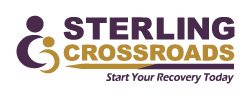For many Americans, especially in rural areas like Kentucky, watching a family member or loved one struggle with addiction is hard. It’s normal to want to help them, but for most people, a professional addiction therapy program offers the best chance of recovery. Sterling Crossroads in Mount Sterling offers addiction therapy in KY; our services include outpatient treatment programs, an intensive outpatient program (IOP), medication-assisted treatment (MAT), and supportive therapies to help you heal. Once you begin addiction therapy, maintaining structure and a schedule is essential. There are many addiction therapy exercises that you or your loved one can try.
Each person experiences addiction in different ways, so you’ll naturally want to explore options and to understand how addiction therapy works. You’ll only benefit from having options when it comes to structured addiction therapy exercises. Sterling Crossroads believes that individuals lead to families, and families lead to communities. Providing addiction therapy exercises as part of a structured program leads to healing and growth.
Contact Sterling Crossroads today to learn about our addiction therapy programs and services, verify insurance, or get started on the road to recovery.
What are some addiction therapy exercises for recovery?
Many addiction therapy exercises can be used in both group settings and alone. Some of these include the following:
Journaling prompts
- Reflect on daily emotions and identify triggering events.
- Write about three things that bring gratitude and peace in recovery.
- Explore personal goals and steps to achieve them while staying sober.
- Document challenges faced during the week and how they were overcome.
Role-playing exercises
- Practice refusing offers of substances in social settings.
- Rehearse conversations to rebuild trust with loved ones.
- Explore coping strategies for high-pressure or triggering situations.
- Simulate scenarios that encourage better decision-making and assertiveness.
Cognitive-behavioral worksheets
- Identify and challenge negative thought patterns contributing to addiction.
- Map out cause-and-effect relationships between actions and consequences.
- Develop plans to cope with high-risk situations using structured problem-solving.
- Record positive affirmations and track progress toward cognitive restructuring.
Mindfulness techniques
- Practice deep breathing exercises to manage moments of anxiety or craving.
- Engage in guided meditation to foster relaxation and internal awareness.
- Use body scans to identify physical tension and connect with the present moment.
- Adopt the habit of mindful walking to enhance focus and reduce stress.
Physical activities for recovery
- Participate in yoga sessions for improved balance of mind and body.
- Take part in recreational sports or group fitness classes to build camaraderie.
- Set small, achievable fitness goals such as walking or jogging regularly.
- Explore outdoor pursuits like hiking or biking to reconnect with nature and boost your mood.
There are many other addiction therapy exercises for individuals and groups. You can try a few and figure out which combination works best for your recovery journey.
What are the techniques for addiction therapy?
Avoiding relapse requires a proactive approach and strong commitment. Mindfulness techniques, such as meditation and deep breathing, help individuals manage stress and stay present, reducing the influence of cravings. Participating in behavioral therapy can help identify and redirect negative thought patterns and build healthier mental habits. Engaging in regular physical activity not only boosts mood but also provides a positive outlet for energy and emotions.
Creating a daily routine with structured activities can help replace old, harmful behaviors with new, constructive ones. Additionally, maintaining a strong support system offers accountability and encouragement. By employing these techniques, individuals can better protect their recovery and life of sobriety.
What are 3 strategies often used to treat addiction and maintain recovery?
While many techniques and addiction therapy exercises are helpful, having a winning strategy for recovery helps you maintain sobriety. Here are three common strategies used to treat addiction:
1. Relapse prevention plan
A relapse prevention plan is a structured approach designed to help individuals identify triggers, high-risk situations, and coping strategies to avoid falling back into old habits. This plan typically includes strategies such as mindfulness techniques, stress management exercises, and setting boundaries to steer clear of tempting environments. Regularly reviewing and updating the plan ensures it remains effective and adaptable to life’s changes.
2. Continued therapy
Ongoing therapy plays a crucial role in supporting long-term recovery, even after initial addiction treatment. Individual, group, or family-focused therapy offers a safe space to explore emotions, resolve conflicts, and address underlying issues that contribute to addiction. Behavioral therapies are particularly effective in helping individuals develop healthy thought patterns and coping mechanisms.
3. Maintaining a support network
A strong support network provides emotional encouragement, guidance, and accountability during recovery. This network may include trusted family members, friends, support groups, and sponsors who understand recovery challenges. Regularly engaging with this support system through meetings, check-ins, or activities helps individuals stay connected and motivated to maintain sobriety.
Find Addiction Therapy at Sterling Crossroads in Mount Sterling, KY
If your family member or loved one is caught in the cycle of addiction and you’re struggling to know what to do, let Sterling Crossroads help. We offer outpatient addiction treatment for residents of Mount Sterling and the surrounding areas. Call 859.274.4422 today or reach out online and start your recovery journey toward healing and growth.





